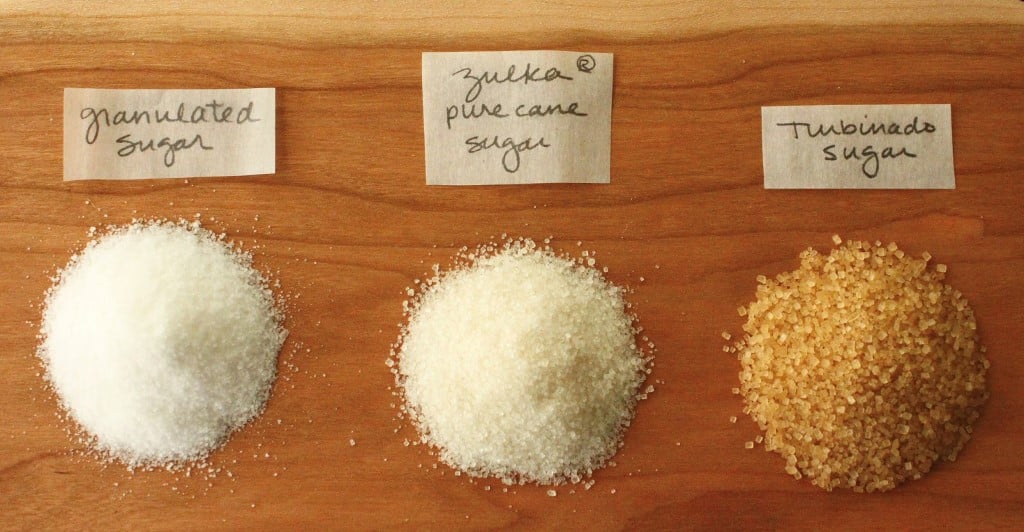The Great Debate: Sugar Beet Vs Sugar Cane - Which Is the Superior Choice for Sugar?
The argument over sugar beet versus sugar cane as the recommended sweetener includes several essential elements. Each offers unique benefits and obstacles relating to manufacturing, flavor, and health and wellness implications. While sugar beet might interest those focusing on sustainability, sugar cane has its very own social and culinary importance. As consumers come to be a lot more mindful of their options, the inquiry remains: which sugar really stands out in today's market?
The Origins of Sugar Beet and Sugar Cane
Sugar cane has been cultivated for thousands of years, largely in tropical regions, sugar beet arised as a significant alternative in cooler environments throughout the 18th century. Sugar cane, native to Southeast Asia, was first tamed around 8000 BCE and spread out worldwide via trade and expedition. Its high sucrose content made it a useful crop, resulting in comprehensive ranches in areas like the Caribbean and Brazil.
On the other hand, sugar beet was very first cultivated in the Mediterranean around the 18th century, particularly obtaining grip in Europe as a feedback to sugar cane shortages. The plant thrives in pleasant environments, making it appropriate for areas with colder climate. The discovery that sugar can be drawn out from beet roots transformed sugar production, especially throughout the Napoleonic Battles when profession restrictions restricted cane sugar access. The rise of sugar beet farming noted a pivotal minute in the history of sweeteners, giving a local source for lots of countries.
Production Procedures: From Area to Sweetener
The production procedures of sugar beet and sugar cane expose substantial distinctions in farming methods, collecting approaches, and refinement phases. Understanding these subtleties is important for valuing exactly how each plant adds to the total sugar market. This comparison highlights the unique features and difficulties associated with both resources of sweetness.

Farming Strategies Contrast
Farming strategies for sugar beet and sugar cane expose distinct methodologies that affect their production procedures, from field prep work to final sugar extraction. Sugar beet cultivation typically includes plowing and traumatic to create a fine seedbed, followed by seeding in rows to facilitate development. This crop gain from cooler climates and is commonly planted in spring. In contrast, sugar cane is typically grown in furrows with pre-sprouted cane items, needing a cozy, tropical environment for excellent development. Cane fields are frequently set out to handle water effectively, given its need for substantial watering. Both crops are taken care of with particular fertilizing and parasite control practices customized to their development settings, impacting return quality and performance in sweetener removal.

Gathering Approaches Clarified
Effective harvesting techniques for sugar beet and sugar cane play a crucial duty in guaranteeing maximum return and high quality of the final item. Sugar beet collecting commonly employs mechanized origin farmers, which effectively uproot the beets from the soil and separate them from the foliage. This method reduces damage to the beetroots and decreases labor prices. In contrast, sugar cane harvesting might use either manual work or equipment, depending on the area and scale of production. Mechanical harvesters reduced the cane at the base and frequently remove the fallen leaves, enhancing the process for bigger areas. Both methods need mindful timing to ensure the plants are gathered at peak sweetness, influencing the high quality of the final sugar product.
Refinement Process Differences
While both sugar beet and sugar cane undertake extensive refinement procedures to transform their raw kinds right into useful sweeteners, the methods utilized differ significantly. Sugar beet improvement begins with washing and slicing the beets right into slim cossettes, complied with by diffusion, where warm water removes sucrose. The resulting juice is then cleansed, focused, and crystallized. On the other hand, sugar cane handling involves squashing the stalks to remove juice, which is then clarified making use of lime and warm to remove contaminations. The cane juice is evaporated to form syrup before crystallization. Eventually, while both procedures aim to produce white sugar, the unique techniques highlight the special characteristics of each source and their ramifications for flavor and pureness in the final product.
Nutritional Profiles: What remains in Your Sweetener?
The nutritional profiles of sugar beet and sugar cane existing distinct distinctions worth checking out. This contrast includes aspects such as calorie content, mineral and vitamin existence, and variants in glycemic index. Comprehending these variables can offer insights right into just how each sweetener might influence overall health and wellness.
Calorie Material Contrast
Understanding the calorie web content of sugar beet and sugar cane is necessary for those conscious of their dietary choices. Both sugar mainly consist of sucrose, contributing a similar caloric worth. Usually, sugar beet consists of around 387 calories per 100 grams, while sugar cane has regarding 390 calories per the exact same quantity. The mild distinction in calorie material may not significantly effect most diet regimens; nevertheless, it is impressive for those very closely monitoring their caloric intake. Furthermore, both sugar resources offer power but do not have crucial nutrients, making them primarily sources of empty calories. Individuals seeking much healthier alternatives may want to take into account these aspects when selecting in between sugar beet and sugar cane as their liked sweetener.
Mineral and Vitamin Web Content
Caloric web content gives just a part of the image when examining sugar beet and sugar cane. Both sources of sugar vary substantially in their mineral and vitamin accounts. Sugar beetroots are incredibly abundant in important nutrients, including potassium, magnesium, and iron. They likewise contain percentages of vitamins such as B6 and folate, contributing to their nutritional worth. On the other hand, sugar cane supplies a various collection of benefits, having calcium, phosphorus, and traces of B vitamins. While neither alternative is a substantial source of minerals and vitamins compared to entire foods, sugar beets might have a minor edge as a result of their greater mineral material. Eventually, customers seeking dietary take advantage of sweeteners must think about these distinctions in accounts.
Glycemic Index Differences
Glycemic index plays an important duty in assessing just how various sweeteners influence blood sugar degrees. Sugar beet and sugar cane exhibit notable distinctions in their glycemic responses. Normally, sugar beet has a reduced glycemic index compared to sugar cane, resulting in a slower and steadier surge in blood sugar degrees after usage. This quality may make sugar beet a more effective choice for individuals managing diabetes or those looking for to keep steady energy degrees. On the other hand, sugar cane often tends to create an extra fast spike in blood glucose, which might result in quicker power collisions. Recognizing these differences is significant for consumers aiming to make educated dietary options regarding sweeteners and their effect on general health and wellness.
Environmental Effect: Sustainability Factors To Consider
While both sugar beet and sugar cane are vital resources of sugar, their ecological impacts and sustainability considerations differ considerably. Sugar beetroots, mostly expanded in warm areas, generally require much less water and can be grown in varied climates. They likewise gain from crop rotation techniques, which enhance dirt health and wellness and minimize the requirement for synthetic plant foods. However, intensive farming of sugar beetroots can bring about dirt deficiency and chemical use.
In comparison, sugar cane flourishes in exotic environments and usually demands substantial water resources for irrigation (Sugar beet vs sugar cane). The monoculture nature of sugar cane farming can exacerbate dirt disintegration and biodiversity loss. Additionally, the burning of cane areas prior to harvest releases carbon exhausts Homepage and adds to air contamination. Both plants deal with obstacles pertaining to climate modification, but their varying growing techniques exceptionally affect their total sustainability accounts. Therefore, the option in between sugar beet and sugar cane involves evaluating these ecological effects thoroughly
Taste and Culinary Makes Use Of: Which Sweetener Reigns Supreme?
The choice in between sugar beet and sugar cane extends past ecological factors to consider to incorporate taste and culinary applications. Sugar beet, commonly viewed as having a slightly various taste account, often tends to be much less wonderful than sugar cane. This refined difference can affect its use in dishes, especially in baked goods where a neutral sweet taste is desired.
Alternatively, sugar cane is celebrated for its distinct, abundant, and extra complicated taste, making it a preferred selection for beverages and desserts - Sugar beet vs sugar cane. Its natural molasses content can enhance the depth of tastes in various dishes
In cooking, sugar cane's versatility radiates with in sauces, glazes, and confections, while sugar beet is generally found in processed foods and sugar like granulated sugar. Eventually, the decision in between the 2 sugar often hinges on specific preference preferences and specific culinary applications, with each offering distinct advantages in the kitchen.
Health Ramifications: Sugar Beet Vs Sugar Cane
Both sugar beet and sugar cane have distinct health ramifications that can influence customer choices. Sugar beet vs sugar cane. Sugar beet is usually related to for its greater fiber web content, which can aid digestion health. Furthermore, it contains particular anti-oxidants that may add to total health. On the various other hand, sugar cane is rich in nutrients such as calcium, potassium, and magnesium, supplying some mineral advantages
Both resources mainly consist of sucrose, which can lead to comparable wellness problems when eaten exceedingly, such as excessive weight, diabetic issues, and heart disease. The handling methods additionally differ; sugar beet is typically improved a lot more intensively, potentially causing a loss of particular nutrients. Customers concerned about ingredients might choose sugar cane, as it usually goes through less processing. Eventually, understanding these wellness implications can direct people toward making notified choices concerning their sweetener options.
Consumer Preferences: Fads and Insights
Customer preferences for sugar have advanced considerably in current years, influenced by health fads, environmental problems, and dietary selections. Boosted understanding of the go to website adverse wellness impacts connected with too much sugar intake has actually led numerous customers to seek options. This change has actually prompted an expanding passion in all-natural sweeteners, with sugar beet and sugar cane going to the forefront of conversations.
Research study suggests that consumers are significantly preferring sugar beet as a result of its regarded environmental advantages, as it is frequently grown closer to refining plants, reducing transportation discharges. Conversely, sugar cane is commonly related to exotic regions and might lug understandings of sustainability obstacles.

Frequently Asked Inquiries
Exactly How Do Sugar Beet and Sugar Cane Affect Blood Sugar Levels?
Sugar beet and sugar cane both include sucrose, which can raise blood glucose degrees. The influence greatly relies on individual metabolism and intake amounts, yet both resources add likewise to blood sugar actions for the most part.
Which Sugar Is Better for Cooking and Food preparation?
When examining sweeteners for cooking and food preparation, one have to take into consideration structure, flavor, and dampness retention. Sugar beet and sugar cane both use distinct high qualities, with sugar cane commonly favored for its richer flavor profile in culinary applications.
Can Sugar Beet or Cane Be Used in Vegan Diets?
Both sugar beet and sugar cane can be made use of in vegan diet regimens. They are plant-derived sweeteners, making them suitable for individuals seeking vegan-friendly choices without pet products, making certain honest selections in their cooking methods.
What Are the Historical Uses Sugar Beet and Cane?
Historically, sugar Extra resources beet and cane acted as essential sources of sweetness, with cane grown in tropical areas and beet in temperate areas. Both have been important to different cultures, economic situations, and culinary traditions throughout background.
Exist Any Type Of Alternatives to Sugar Beet and Cane?
Alternatives to sugar beet and cane include agave nectar, honey, syrup, and sweetening agents like aspartame and sucralose. These substitutes supply varying flavors and wellness advantages, attracting diverse nutritional preferences and constraints.